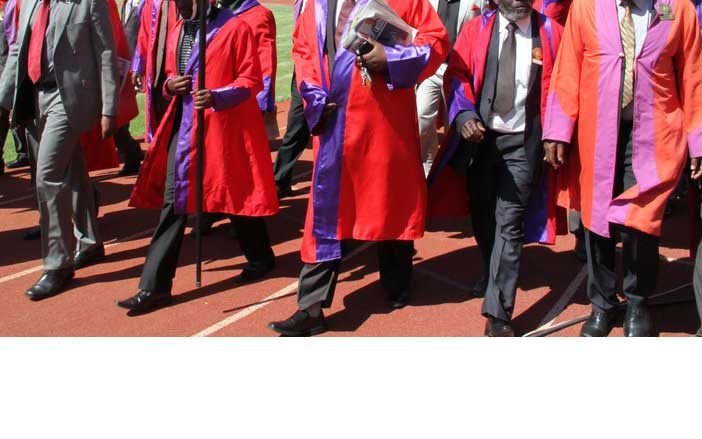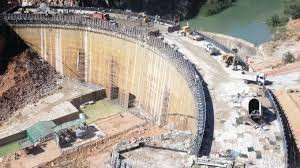
TRADITIONAL leaders are responsible for nearly half of Zimbabwe’s human rights violations in rural areas, a leading human rights watchdog has claimed.
Civil society organisations (CSOs) have been tracking human rights abuses across Zimbabwe amid concern that the traditional leaders have abandoned their role of leading development in their communities to meddling in partisan politics.
The reports also come after the traditional leaders have been accused of intimidation, abuse and politicisation of food aid distribution programmes.
In an interview with NewsDay yesterday, Heal Zimbabwe Trust advocacy officer Tapiwanashe Chiriga said the traditional leaders accounted for 40% of all the country’s human rights violations this year alone.
“In the run-up to the 2023 elections, village heads were illegally appointed Zanu PF cell chairs and became the epicentre of a litany of human rights abuses including but not limited to intimidation, partisan deprivation of government aid, forced attendance and participation of their subjects at Zanu PF meetings, rallies and activities,” he said.
“On election day, they marshalled their subjects to the polling stations forcing them to vote for the ruling party.
“The continued partisan conduct by these traditional leaders is largely a result of ignorance of the law and the few who know the law are afraid of losing their positions thanks to Zanu PF’s control of appointment processes. Some have been forced to support the ruling party because of the politics of patronage.”
Chiriga said traditional leaders should stick to their constitutional mandate and protect community rights.
- Village Rhapsody: Marry Mubaiwa abuse: A stain on our conscience
- Village Rhapsody: Marry Mubaiwa abuse: A stain on our conscience
- Why newly-licensed radio stations face bleak future
- Why newly-licensed radio stations face bleak future
Keep Reading
“There’s a serious need for the State, civil society and progressive people in Zimbabwe to work with traditional leaders and ensure they are knowledgeable about what the Constitution and other pieces of legislation expect them to do and be.
“The Traditional Leaders Act must also be amended so that it is clearer on their conduct and add punitive criminal sanctions to traditional leaders who violate the Constitution and trash human rights,” he said.
Zimbabwe Human Rights NGO Forum acting director Wilbert Mandinde also expressed concern on the increasing politicisation of traditional leaders, accusing them of siding with political parties and misusing their authority.
“Our concern is that during the course of the year, we have continued seeing traditional leaders taking a partisan approach,” Mandinde said.
“We think it is not correct for the traditional leaders to be linked with political parties because their subjects belong to different political parties. Complaints that we have received this year also included partisan distribution of food aid through the traditional leaders.”
Mandinde said the forum had also received complaints about traditional leaders who preside over issues of political violence which are outside their mandate.
“Sometimes, we believe that these traditional leaders have exceeded the bounds of their power,” he said.
The Zimbabwe Human Rights Commission (ZHRC) recently said traditional leaders intimidated voters by identifying and taking down names of those who voted for the opposition party.
“ZHRC received allegations of post polling intimidation whereby the electorate reported that meetings were being scheduled by some ruling party members and some individual traditional leaders as platforms to identify those who had voted for the opposition and ‘deal with them’,” ZHRC said.
In a policy brief titled Rights and Traditions: Traditional Leadership, Politics and Human Rights In Zimbabwe released in June last year, the Zimbabwe Human Rights Association (ZimRights) said traditional leaders had often been characterised as “willing enablers” of the ruling party.
It said it had been alleged that the ruling party had captured the institution of traditional leadership in the country, adding that the allegations have arisen on the back of reports of traditional leaders committing and facilitating the perpetration of politically-motivated violence and other electoral malpractices aimed at furthering the interests of Zanu PF.
“Mounting reports of traditional leaders being actively involved in vote-buying, coercion and manipulation of the electorate through the partisan distribution of food aid and other malfeasances have cast aspersions on the institution of traditional leadership in Zimbabwe,” the rights organisation said.
“Local ownership of the institution of traditional leadership has been severely eroded, resulting in citizens and civil society organisations virtually surrendering traditional leaders over to the ruling party, normalising the institution’s function as an appendage of Zanu PF.”
ZimRights national projects manager Leo Chamahwinya said there was urgent need to uphold citizens rights in the country and return the function of the traditional leaders to the incumbent.
“The problem of traditional leaders being co-opted into partisan politics is not only due to policy deficiencies, but also because of the normalisation of the affinity of traditional leaders to Zanu PF,” he said.
“By conflating national interests with political party interests, patriotism with loyalty to Zanu PF, the National Council of Chiefs and Provincial Assemblies of Chiefs, bodies meant to represent the interests of traditional leaders, have instead enforced compliance of traditional leaders with the dictates of the ruling party.”
Added Chamahwinya: “All political parties must respect the integrity of the institution of traditional leadership as required by the Constitution and desist from co-opting traditional leaders to their ranks.
Traditional leaders should recognise that their institution is under siege. Their continued existence and relevance is at stake. They should individually and as a collective work towards preserving their political neutrality, which is a quintessential aspect of the integrity of their institution.”
Efforts to get a comment from the Chiefs Council of Zimbabwe president Mtshane Khumalo were fruitless because his mobile number was not reachable.
He, however, told NewsDay recently that the chief’s council has not received any reports of traditional leaders who intimidated people during the August 23 and 24 harmonised elections.










